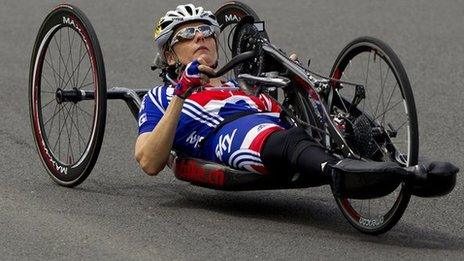Rio Paralympics 2016: Russian doping ban 'cynical', says PM
- Published
Russian para-athletes banned after doping scandal
Russia has reacted with fury after a court upheld a ban on its athletes competing in next month's Paralympics.
Prime Minister Dmitry Medvedev called the ban, levelled over allegations of doping, a "cynical decision".
On Tuesday the Court of Arbitration for Sport (Cas) upheld the International Paralympic Committee's (IPC) decision to ban all Russian competitors.
The IPC made the decision after the McLaren report detailed a Russian state-sponsored doping programme.
"Banning our Paralympic athletes from Rio 2016 is a cynical decision motivated by a desire to remove strong rivals," Mr Medvedev said.
Andrei Strokin, the Secretary General of the Russian Paralympic Committee, said that the mood of the athletes was low, "because often for a disabled person it is the only chance of self-realisation and achieving something in life".
Roman Petushkov, a six-time Russian Paralympic champion, called the decision "inhumane" and a "humiliation".
Long-jumper Vadim Alyoshkin said athletes were "pawns in a big game we have nothing to do with".
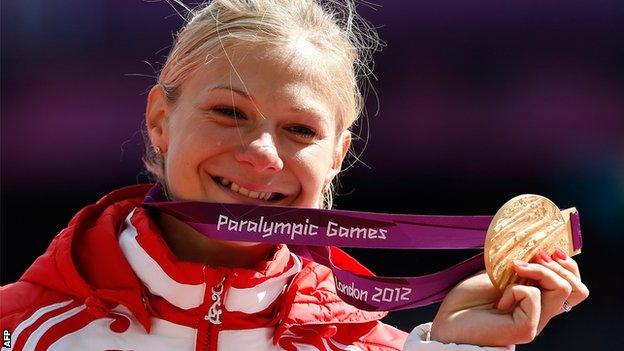
Margarita Goncharova, a three-time Paralympic gold medallist in athletics, is among the Russians who will miss out on competing in Rio
But Karen Pickering, a four-time British Olympic athlete and four-time world champion, praised the decision.
"There is a real appetite right now amongst athletes that we don't want any former drug cheats in the Olympic Games," she said.
Craig Spence from the IPC said the body had "great sympathy" with the Russian athletes but said the decision was prompted by evidence of a state-sponsored doping system.
The Russian Paralympic Committee did not file any evidence contradicting the facts put forward by the IPC.
Paralympic v Olympics
The IPC's decision is in contrast to that of the International Olympic Committee (IOC), which chose not to hand Russia a blanket ban from the Olympic Games.
The IOC was widely criticised for ignoring the World Anti-Doping Agency (Wada) recommendation to ban Russia.
Instead, each individual sporting federation was given the power to decide if Russian competitors were allowed to compete. A three-person IOC panel then had the final say.
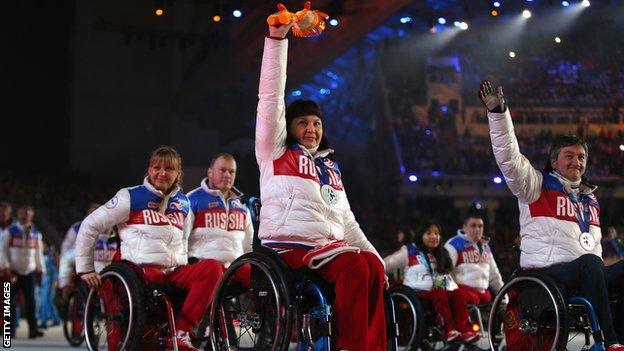
Russia won 80 medals, including 30 gold, at the Sochi 2014 Winter Paralympics - the most in a single Winter Paralympics
In the end, more than 270 Russian athletes were cleared to compete at the Olympics, with Russia winning 56 medals in total and finishing in fourth place in the medal table.
Russia had been set to take 267 competitors across 18 sports to the Paralympics. The Cas statement added that it had not looked at the "natural justice rights or personality rights" of individual Russian athletes in making its decision.
Russia's Paralympic team's lawyer, Alexei Karpenko, said they would try to file an appeal with the Swiss Federal Supreme Court, but it would take between one and two years for the court to consider the case.
"So I'm afraid Russian Paralympians will not be going to the Games in any case," Mr Karpenko added.
IPC 'hopes this decision acts as a catalyst for change in Russia'
IPC president Sir Philip Craven, who has described Russia's anti-doping system as "broken, corrupted and entirely compromised", and claimed it put "medals over morals", said he was "greatly encouraged" by the Cas decision.
He said it was "not a day for celebration", adding: "We have enormous sympathy for the Russian athletes who will now miss out."
"It is a sad day for the Paralympic movement," said Craven. "But we hope also a new beginning. We hope this decision acts as a catalyst for change in Russia and we can welcome the Russian Paralympic Committee back as a member safe in the knowledge that it is fulfilling its obligations to ensure fair competition for all."
Why was Russia banned?

Russia won 80 medals, including 30 gold, at the Sochi 2014 Winter Paralympics - the most in a single Winter Paralympics
Richard McLaren, a Canadian law professor, published a Wada independent report that found Russia's sports ministry manipulated urine samples provided by its athletes between 2011 and 2015.
The report identified 27 samples relating to eight Para-sports, five of which are summer sports, including some governed by the IPC.
The IPC also found evidence that samples were swapped during the Sochi 2014 Paralympic Games, adding that it planned to reanalyse every Russian sample given at the event.
Paralympics going ahead despite major cuts
The Paralympics are going ahead as planned, but face major budget cuts as Rio's organising committee has not raised enough to fund the event because of Brazil's struggling economy and poor ticket sales.
Cuts will affect venues, workforce and transport. Delayed travel grants will now be paid to athletes, but 10 countries may struggle to get teams to Rio.
- Attribution
- Published12 August 2016
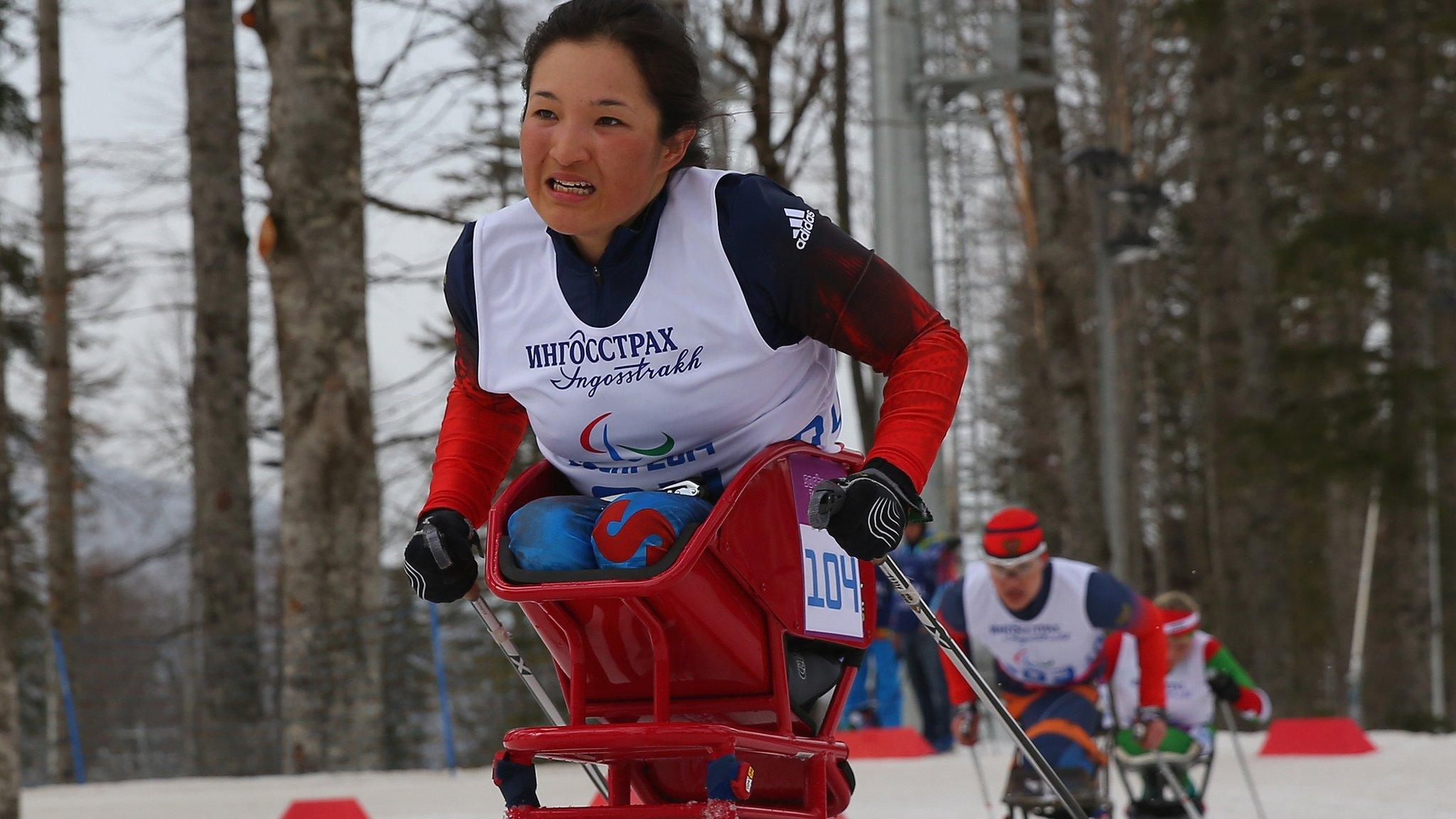
- Attribution
- Published21 August 2016
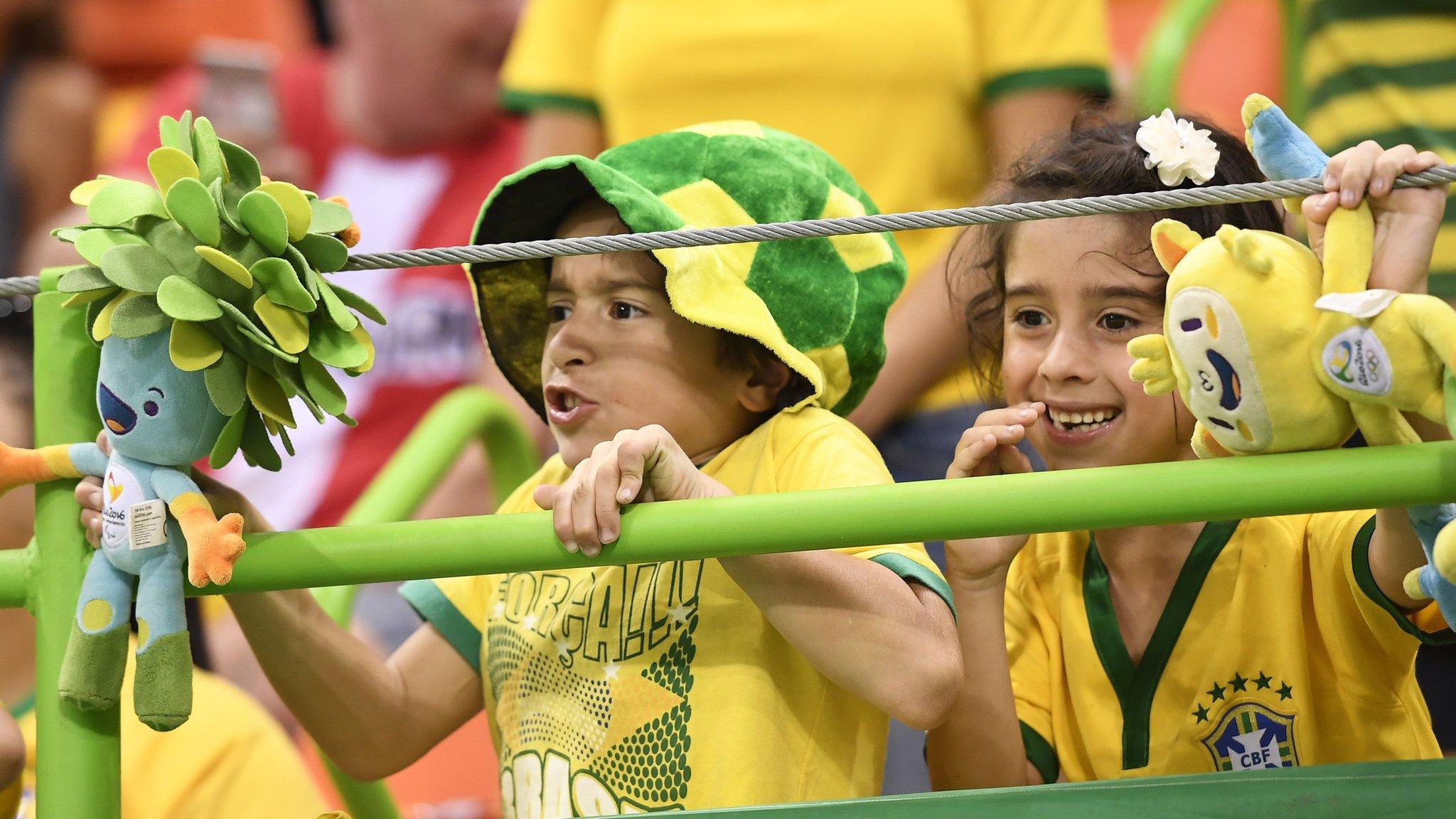
- Attribution
- Published20 August 2016
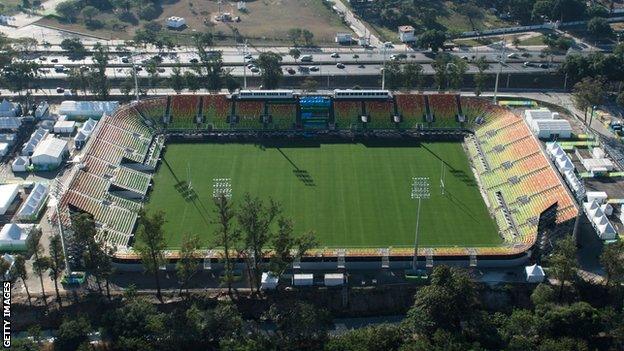
- Attribution
- Published17 August 2016
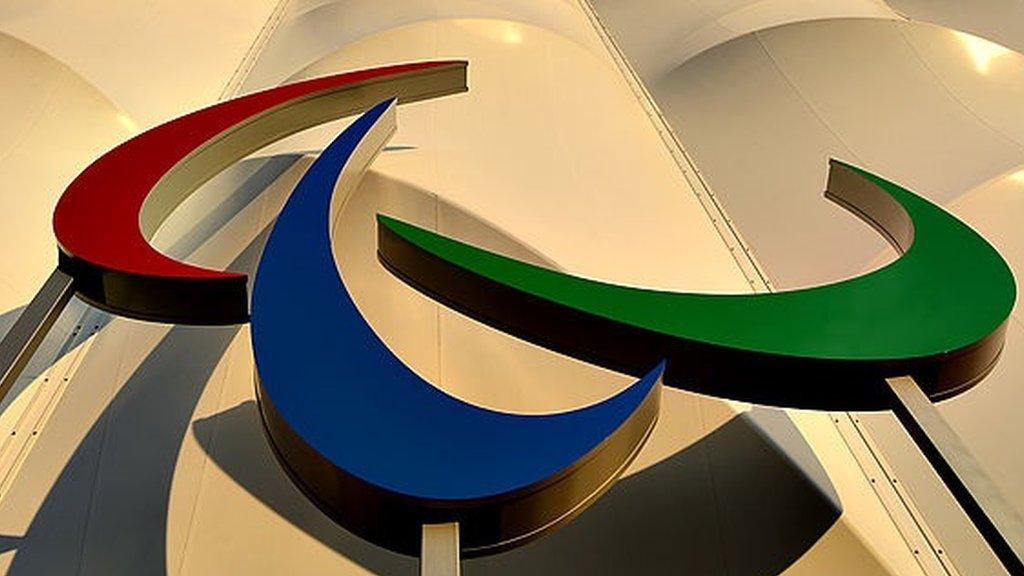
- Attribution
- Published23 August 2016
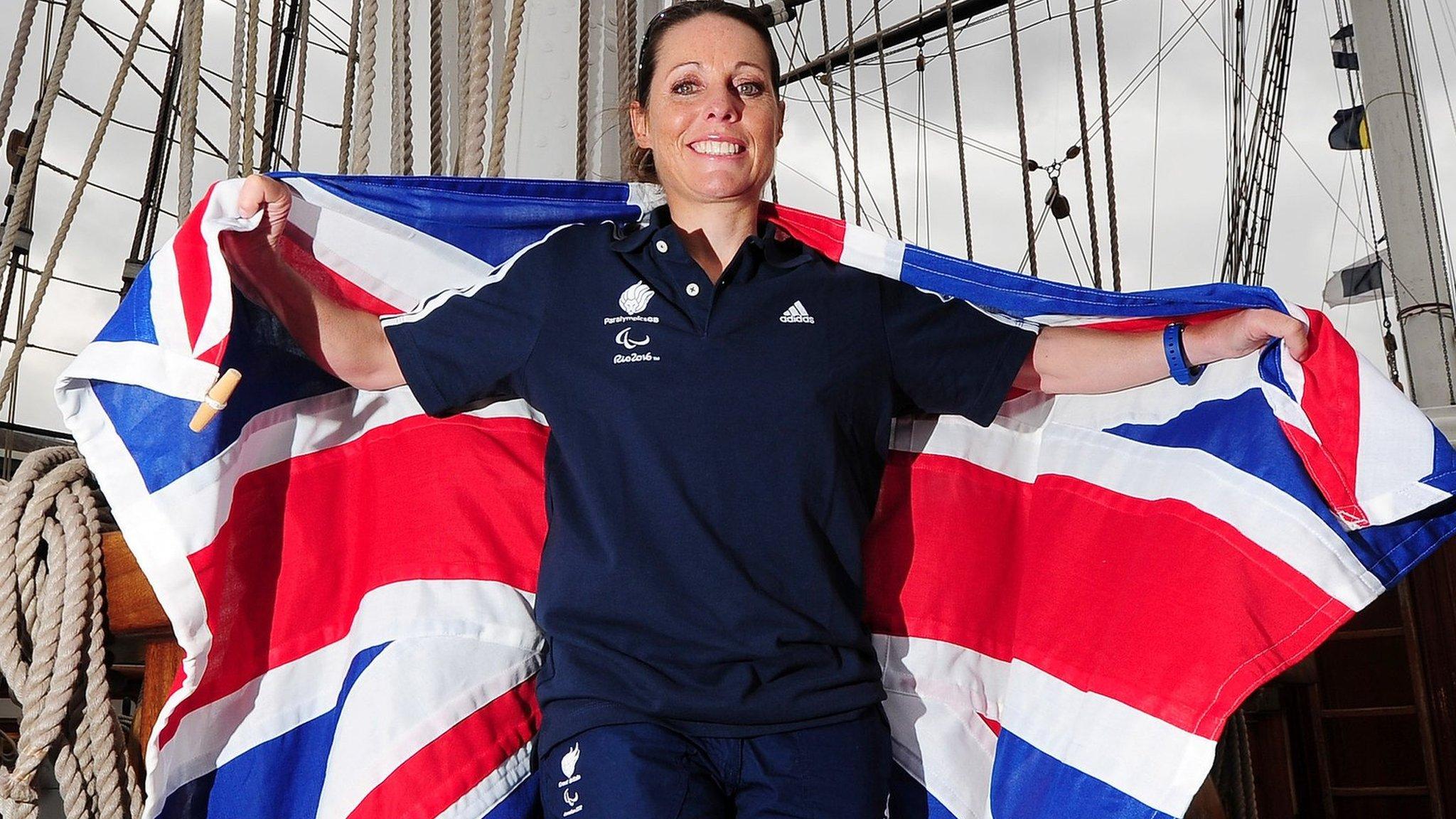
- Attribution
- Published5 September 2016
